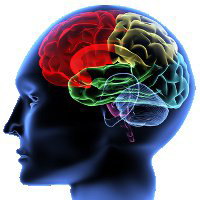Brain Injury
A Complex Disability
For many people after a brain injury, there appear to be no lasting effects from their injury. The effects of cognitive, executive and psychological deficits are, unlike those of a physical disability, often not visible. This ‘invisible’ disability confounds many people because often they lack the relevant knowledge and experience. Headway seeks to address this with its information services, campaigns and liaison with professionals at the local level. Some of the long term effects of a brain injury can be:
- Changes in personality and behaviour
- Poor concentration
- Irritability and disinhibition
- Difficulties with memory and attention
- Epilepsy
- Poor planning, organisational and problem-solving skills
- Impaired mobility
- Inability to handle money
- Sensory problems
- Altered perception of self and world around them
- Inability to understand and communicate
- Often a lack of awareness of what has changed
- Lack of initiative and motivation
- Emotional difficulties, such as depression and anxiety

We Can Help
These changes will have long term consequences for people with an ABI. But Headway North Staffs is here to help. Whatever your issues we can provide support for your rehabilitatation –
- Our gym can help buid up your strength, stamina, balance and dexterity.
- Our day centre activities are designed to improve cognition, memory, social interaction. These include games, puzzles, quizzes, exercise sessions.
- Our woodwork room can help improve dexterity, concentration, memory and give the feeling of satisfaction as you create something, useful or beautiful.
- Our occupational and physiotherapy service offers an assessement to help set your goals and then sessions designed to help.
- Our Speech and language service improves communication skills and build confidence so that people can feel they can interact and socialise again.
- Our outreach service brings Headway North Staffs to you, follow the link to see our offer.
To learn more contact us by telephoning 01782 280952 or drop us an email by visiting our contact page. We can arrange for a tour around the facilities so that you can what we can do for you.
